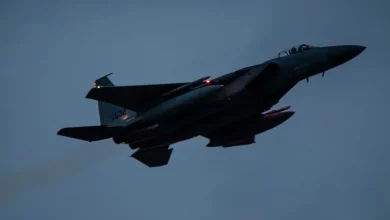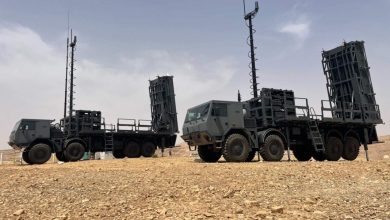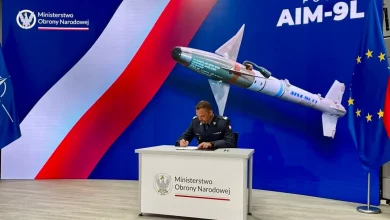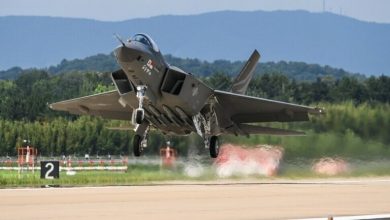Analysis: The rising power of Turkey in Africa’s defense
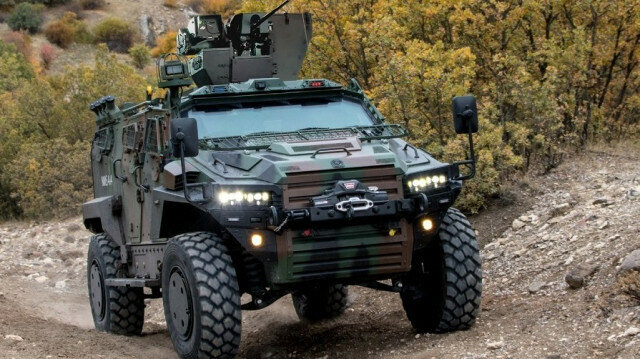
As almost half of African states signed agreements on cooperation in defense industry with Turkey, so far 14 states imported various weapons and military vehicles
The scope of Turkey’s investments in the African continent is gradually expanding. Having managed to be among the main development partners of African countries with a trade volume of $30 billion and investment projects worth $78 billion by the end of 2021, Turkey has begun to stand out as the security partner of African states by leaping forward in the field of defense industry.
While approximately $83 million of defense industry products were exported from Turkey to Africa in 2020, this figure exceeded $288 million in a short period of one year.[1] As almost half of the African states signed agreements on cooperation in the defense industry with Turkey, so far 14 states (Burkina Faso, Algeria, Chad, Morocco, Ghana, Kenya, Mali, Mauritania, Niger, Nigeria, Senegal, Somalia, Rwanda, and Uganda) imported various weapons and military vehicles from Turkey. The participation of ministers from various African countries in the 15th International Defense Industry Fair held in Istanbul in 2021, shows that there is a growing demand from African states for Turkish defense industry products.
While Africa Defense Group and Atlantis Group from South Africa took part in the said fair, Turkish companies continue their efforts to promote themselves by participating in defense industry fairs in Africa.
The revival in Turkey-Africa defense relations is related to the intensification of conflicts that threaten the sovereignty and security of African states in the last 20 years. The regional geopolitical rivalry between Algeria and Morocco over the Western Sahara issue, the internal conflict due to the Tigray issue in Ethiopia and its tense relations with Egypt over the construction of the dam on Nile River, the ongoing Al-Shabab threat in Kenya and Somalia, increasing attacks by al-Qaeda affiliated groups throughout the Sahel region, particularly in Mali, the ongoing effects of the civil war in the Central African Republic, Ambazonian separatism which is tried to be suppressed violently in Cameroon, Boko Haram terror group, which maintains its bloody actions in Nigeria, bomb attacks in Uganda in recent months and the threat of Daesh reaching as far as Mozambique are some of the conflicts that have recently threatened security in Africa.
The intensification of conflicts both feeds the militarization trend, which has been registered with the succession of coups in Sudan, Mali, Guinea, and finally Burkina Faso, and also brings along the continental states to allocate more budgets for defense expenditures. As the total defense expenditures of African states were around $19 billion in 2000, it increased to over $45 billion in 2014. The relative downward trend observed since 2014 was replaced by an upward trend again after 2018. The total defense expenditure reached in 2021 was around $60 billion.[2] The rate of increase in military expenditures reaches much higher levels in conflict zones.[3] For instance, between 2016 and 2020, Burkina Faso’s arms imports increased by 83%, and the number of arms shipped to Mali increased by 669%.[4] In this context, it can be said that there is a correlation between the increasing defense requirements of African countries and their interest in Turkish defense industry products.
– Other actors in African continent
The main arms suppliers of African states are Russia, China, France and the USA. Notably, the military influence of Russia is increasing throughout the continent. Considering the Turkish defense industry exports to Africa are $288 million as the total defense expenditures of African states reached $60 billion in 2021, it is seen that Turkey’s share in this market is still at the level of 0.5 percent. However, it is known that many African states have demonstrated a will to diversify their security partners and arms suppliers.For this reason, apart from the main suppliers listed above in the African arms market, a wide range of suppliers such as Germany, England, Italy, Israel, Ukraine, Serbia, Lithuania, Iran, and North Korea stands out.
With its capability to produce attractive weapons in terms of cost-effectiveness and price-performance ratio such as the Bayraktar TB2 armed unmanned aerial vehicle, Turkey is also turning into an alternative supplier for African states. Caring about the sensitivity of African states regarding sovereignty and territorial integrity, Turkey can change the balance of power in favor of the legitimate governments in the (conflict zones) with its comprehensive military training support and high-tech defense industry products. This success, most recently experienced in Libya and Ethiopia, makes defense cooperation with Turkey attractive for African states.
The main factor that can strengthen Turkey’s defense investments in Africa is technology transfer and military capacity building. It is difficult to talk about a significant technology transfer other than the installation of already exported systems. This situation is not applicable for Turkey. Each country keeps the information about the weapon technology it produces as a state secret. Therefore, the area where states are least willing to share information and technology is the defense industry. In addition, the lack of developed industrial infrastructure across Africa poses a serious obstacle to technology transfer.[5]
It is worth mentioning the example of North Korea, as it shows the importance African states attach to technology transfer and military capacity building. Despite the United Nations sanctions in recent years, the overwhelming majority of the countries that have been reported to have established military ties with North Korea are from the African continent. It has been reported that Eritrea, Libya, Namibia, Sierra Leone, Sudan, and Tanzania imported various military equipment from North Korea and Mozambique and Uganda have transferred military equipment for testing and reverse engineering purposes and received training and consultancy services for the production, maintenance and use of this equipment.
The aforementioned military production cooperation explains to a large extent why African states insist on cooperation with such a country despite the sanctions. Most non-continental actors sell weapons and provide various forms of military support to African states in order to gain diplomatic and economic influence or create “dependent customers” for themselves.
North Korea, on the other hand, preferred to establish weapons factories in Ethiopia, Madagascar, Namibia, Nigeria and Uganda instead of such a standard military relationship. Although such investments made by Pyongyang in the defense industry of African countries provide gains in the short term, they mean losses in the long term. The modest contribution of North Korea to the building of defense capacities of African states pushes the continental states to make a strategic choice between the long-term benefits of maintaining cooperation with Pyongyang and the short-term cost of violating international sanctions. Even if the mentioned contribution does not correspond to a modern military capacity building, it may be considered important by African states because it differs logically from that of other actors.[6]
Certainly, Turkey and North Korea are incomparably different countries in terms of political and economic structure. Turkey is neither a state that is being tried to isolated from the world with international sanctions nor a country that maintains the Cold War mentality in terms of weapons and weapon technology. In the context of Africa, the conclusion can be drawn from the example of North Korea that even if a marginal state can become a preferable partner in military capacity building, Turkey can achieve this much more easily. Being economically integrated with the world and can produce high-tech defense systems, particularly in the fight against terrorism, Turkey will stand out as a different actor and create a stronger military partnership profile than ever before if it takes steps to build the defense capacities of African states.
ASELSAN South Africa (ASA), which was established in South Africa in 2011, is an important step in this sense. ASA, operating in the fields of electro-optical and opto-mechanical system engineering, deals with the promotion and marketing of ASELSAN products in South Africa and surrounding countries, and also cooperates with South African Paramount Advanced Technologies, which operates in the field of defense industry.[7] Increasing such partnerships will enable Turkey’s defense investments in Africa to turn into a long-term cooperation on a more realistic basis.Certainly, it is necessary to take into account that Turkey will not only have to compete with great powers such as Russia and China, but also African rivals such as Egypt. [8]
AA


